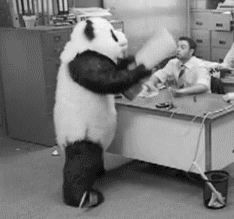It's been a while. I hope you've been able to sleep at night in my absence :)
All jokes aside, I do apologize for my sudden hiatus. My last post was the day after Mr Obama won his second election, and a lot has happened since then. The fiscal cliff has become a pressing issue, quantitative easing remains the most popular monetary policy amongst major central banks...and the world didn't end.
 |
| Please...let's move on now |
Today however, I want to discuss a simple concept - time management!
In the last month or so I have had: Approximately 50 hours of lectures, 18 training sessions, 7 Basketball games. I go to the gym, I DJ, I study for my masters. I've had essays, reports and a LOT group coursework (who invented group coursework?? I'd like to have a word). Not to mention job applications and job assessments. I also have a social life that I try and keep up with somewhat. I graduated (praise God). Somewhere along the line I put this blog to the back, which is one of the things I really didn't want to do when I started. Any ways, I'm back, hopefully for the last time.
Time management. It's important people! Honestly, I used to think it was an overused term but it really does help. As does prior planning. Studies have shown that your mind works more efficiently when you have less decisions to make day to day (You're going to have to take my word for that as I can't find where I obtained this information from). So with that being said, I'm making a decision from now that I will stick to with regards to this blog:
I will post a round-up of the markets and my own views once a week, every Saturday or Sunday.
In between this I will also post during the week. Not every week, but whenever possible.
To round things off, I'll bring it back to time-management again. Currency trading is really attractive for those who have busy schedules. Although I don't do it personally myself, you have the ability to open a trade and leave your computer as you wait for it to hit your target exit point/stop-loss. Some people even have systems set up where trades can be opened and then closed on their behalf when the price reaches a certain point!
I'll discuss exactly how those work in my next post.
Thank you to everyone who gives me good feedback and enquires about my blog!
Merry Christmas
Keep reading,
Jr
www.twitter.com/jr_dot















